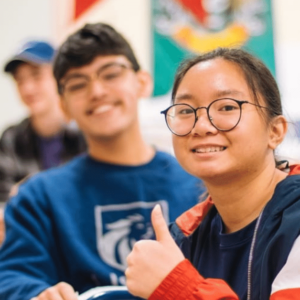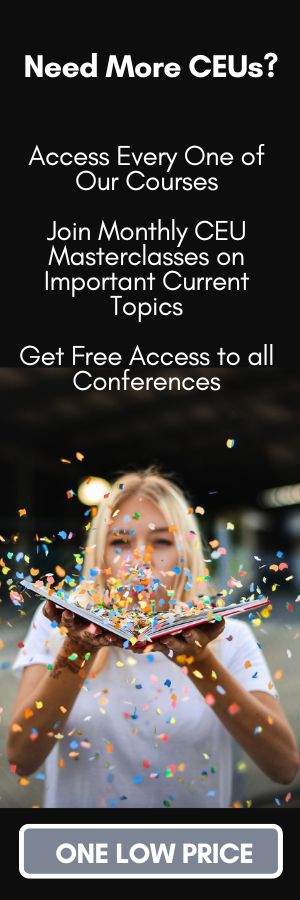The Kids are the Easy Part. I Have to Work with Grownups?
$15.00

Course Type: Video – 1 hour
ASHA Course Code: Service Delivery Associated with Speech, Language, Hearing and Related Disorders – 7010
You’re a communication expert. Why is it often so challenging to communicate productively with colleagues and parents? Because you’re human, and effective communication, like any other acquired skill, must be explicitly learned. We will identify strategies to foster colleague interactions and discuss simple skills to resolve adversarial situations. Join us as we discuss proven and productive relationship-building approaches that help communication-savvy individuals collaborate more effectively with others.
| Population | School Age |
|---|---|
| Topics | SLP Professional |
| Duration | 1 hour |
| Credit | .1 Continuing Education Unit |
| Format | Video |
Financial Disclosure: Scott Prath, M.A., CCC-SLP is a salaried employee of Bilinguistics. Bilinguistics receives royalty payments for online courses.
Non-Financial Disclosure: Scott Prath does not have any non-financial relationships to disclose.
Financial Disclosure: Phuong Lien Palafox, M.S., CCC-SLP was an employee of Bilinguistics. Bilinguistics receives royalty payments for online courses.
Non-Financial Disclosure: Phuong Lien Palafox does not have any non-financial relationships to disclose.
As speech-language pathologists, we have been formally trained in the areas of speech and language. Our education and clinical experiences yield competence for us to perform our daily duties of assessment and therapy. Competence in these areas, however, is only part of our professional credibility (Covey). Whether you work in a school setting, hospital, private entity, or home-health facility, SLPs must be able to work well within a team. And, truth be told, a well-executed interdisciplinary model yields the best results for our clients, students and families (Durbin, 1990). Outside of formal meetings, we must also acknowledge that our daily interactions include communication and engagement with others. What strategies best foster positive and productive colleague interactions? And, what strategies are best for resolving adversarial situations?
Beginning in the 1990’s, a new school of thought emerged in the area of special education. Facilitating IEPs (Individualized Education Programs) is a term used to describe an approach focused on communication, group dynamic and conflict resolution (Schwarz, 1994). As service providers, we are beginning to understand the art of people skills is vital for forward trajectory and client success. Decades worth of literature outside the field of speech-language pathology supports the importance of effective communication strategies in 1) establishing and maintaining productive professional relationships (Patterson et al. 2011, Crucial Conversations) 2) garnering change and new ideas in others (Heath, Switch) (Rogers, 2003, Diffusion of Innovation) and 3) implementing effective processes for compliance and competence. (Capodagli, 2001, The Disney Way).
As speech-language pathologists, we also understand challenging interactions. Our profession requires disseminating unexpected news, reporting professional judgment, tracking data and working within an interdisciplinary team. With all tasks related to the daily functioning of others, emotions and expectations can be vast and difficult. As a result, it is important to utilize effective communication strategies within difficult interactions: earning trust through credibility (Covey), practicing active listening skills (1000 Happy Strategies & Kleon) and being explicit with future goals and objectives (Covey). Use of proven communication strategies confidently and with intentionality in our day to day work and in difficult conversations with others, increases not only the effectiveness of our interdisciplinary teams, but also our personal satisfaction with the quality of our work and of our relationships.
As our field dynamically adjusts to meet our clients’ and students’ needs, it is imperative to utilize effective strategies to embrace change. Equally important is the ability to effectively communicate with all members of the team in an effective and efficient manner. This course will provide specific strategies through research-based approaches and case studies to give functional outcomes for participants.
Participants will:
• List personal and professional needs within interdisciplinary teams
• Identify strategies to foster positive and productive colleague interactions
• Identify productive strategies to resolve adversarial situations
• Discuss elements of case studies
Time-Ordered Agenda:
05 minutes: Introduction and summary
10 minutes: Current trends in service delivery
15 minutes: Research on Intensive Service Delivery Models and the associated benefits
15 minutes: The steps in implementing an effective intensive model
10 minutes: Formulating your plan
05 minutes: Summary and questions
Need CEUs?

 Share
Share
 Tweet
Tweet
 LinkedIn
LinkedIn
 Pin
Pin
 Email
Email





